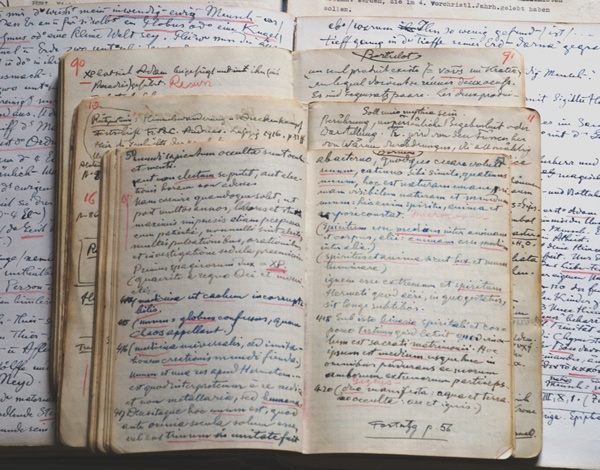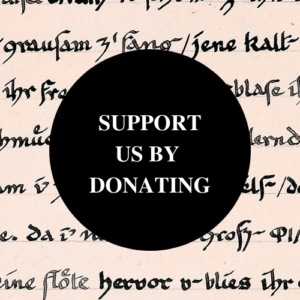
No matter how careful and explicit an author may have been during the original creative process, preparing material for publication remains a complex matter. So it is with the thousands of pages of unpublished Jung.
Jung’s unpublished materials began life as manuscript pages. In the archives in which our scholars, editors and translators work are thousands of pages, typed or rendered in Jung’s distinctive handwriting. Before any intellectual work can begin, the manuscripts must be read, transcribed, and proofed several times. Pages written in German and discussion minutes, sometimes in Swiss German vernacular, require transcription and careful checking to establish a definitive text, before translation and editing can begin..
In some cases, such as that of Jung’s ETH Lectures delivered between 1933 and 1941, a single manuscript must be collated and compiled from various sets of notes by different participants who attended the seminars. At least five different verbatim accounts exist for some of the ETH seminars. In this case, our editors weave these different threads together to form a text that approaches as closely as possible a complete rendition of Jung’s original delivery. Once this has been done, the editorial team reviews the text, identifying important references and supplying explanatory and contextual notes. For a historical annotated edition, the preparatory process requires considerable research. Only with the scholarly apparatus completed and a contextual historical introduction prepared, can the manuscript be submitted for publication, and, once accepted, enter the formal publication process, with further rounds of copy-editing and proof-reading.
The Philemon Foundation is the non-profit organization that pays these editors and translators to prepare Jung’s previously unpublished works for publication. The foundation receives no royalties from the publications of the Philemon Series and depends entirely on donations to pay its scholars.

